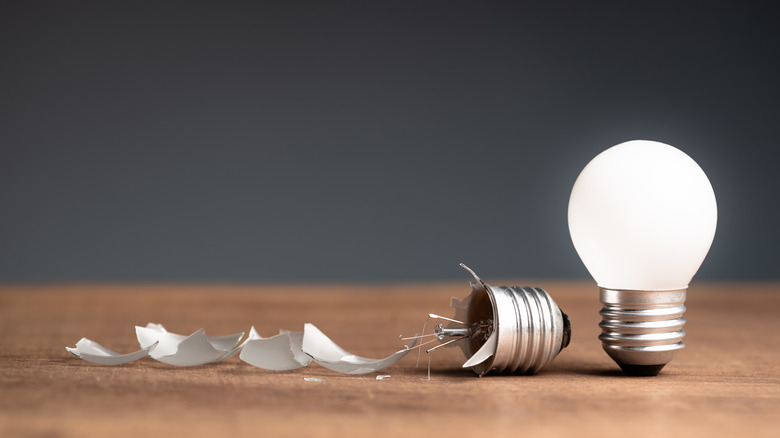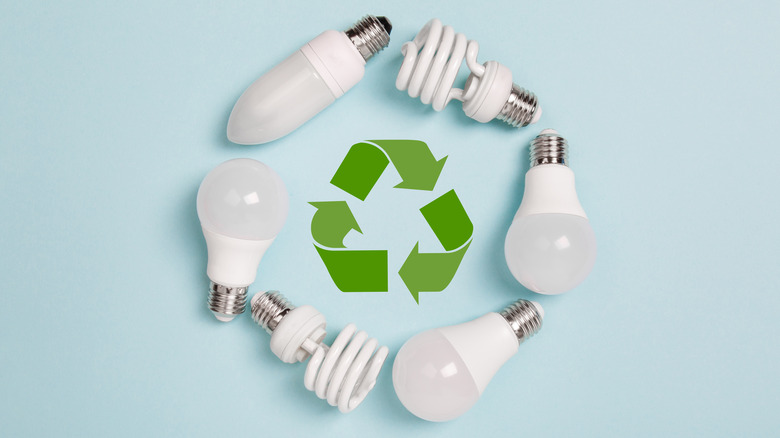The Right Way To Dispose Of Light Bulbs
When it comes to getting rid of certain household items, there may be some confusion about whether they should be tossed in the trash or if they can be recycled safely. Often people recycle certain products that should not be placed in the blue bin. For instance, plastic containers that have not been washed properly, used paper towels, and cardboard boxes that still have food grease on them can actually cause more harm than good when going through the recycling process. This type of product disposal is known as wish-cycling, where people toss items into the recycling that cannot be reused, according to Recycling Nation. Although it's done with the best intentions, people should check with their local waste management department to ensure that they dispose of household items properly.
When it comes to objects that aren't so cut and dry, like light bulbs, it might require a little more research. At first glance, light bulbs may seem like they're made from materials that can be easily recycled. From older incandescent bulbs to new LED light bulbs, you would assume that the glass and plastics that go into the production of these bulbs could be broken down to be reused. However, certain bulbs like the long tube fluorescent light bulbs may contain mercury, which means that they might be better suited for the trash rather than the recycling bin, per GreenTech Solutions Group. But before you chuck your bulbs in the garbage, let's take a closer look.
Here's how you can dispose of your light bulbs
Once that light bulb has had its last day of illumination and can no longer provide the light you need, it's time to toss it out. But the question is, does it go into the garbage, or can it be recycled? If the bulb is cracked or broken, or an older incandescent, halogen, CFL, or fluorescent bulb made from glass, mercury elements, and tungsten filaments, it could be considered hazardous waste. This means that it may need to be disposed of in a special manner and not just thrown into your household garbage. According to the United States Environmental Protection Agency, these broken bulbs can be carefully placed in a container, and it is the responsibility of the individual to contact their local waste management facility to see what the proper steps to disposal are.
However, for newer LED light bulbs, there are plenty of options to have them recycled. These bulbs are not considered hazardous waste, so technically, they can be placed in your household trash, where they will be sent to a landfill to break down. However, these bulbs are 95% recyclable, as per GreenTech Solutions Group, so once these bulbs have burnt out. Either contact your local disposal authority to see if they can be placed in your blue bin or reach out to Earth911 or Batteries Plus to find a location with a recycling program.

